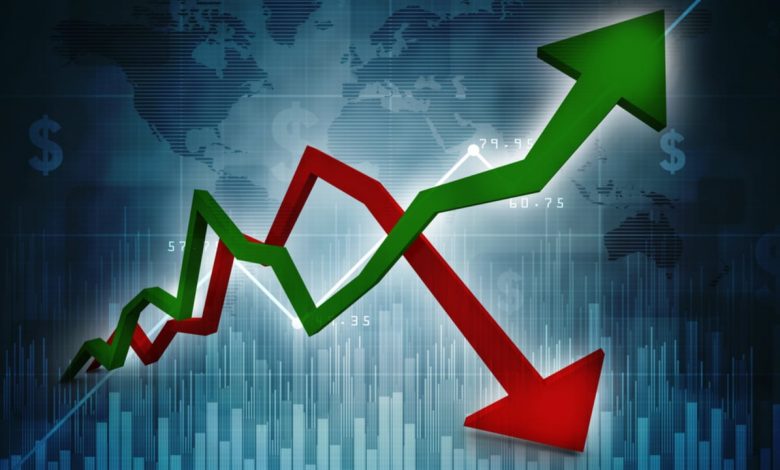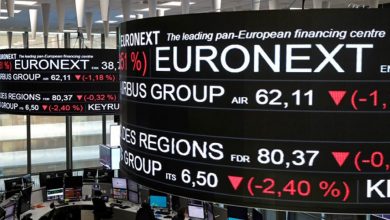Understanding Inflation: Causes, Effects, and Implications

Inflation is a term commonly heard in economic discussions and news reports, but what exactly does it mean? In simple terms, inflation refers to the sustained increase in the general price level of goods and services in an economy over a period of time. This phenomenon affects individuals, businesses, and governments alike and has far-reaching implications for the overall economic health of a country. In this article, we will delve deeper into the concept of inflation, its causes, effects, and its significance in the realm of economics.
1. The Basics of Inflation: A Rise in Prices
- Inflation Rate: Inflation is often measured by the inflation rate, which calculates the percentage increase in the average price level of a basket of goods and services over a specific period.
- Consumer Price Index (CPI): The CPI is a widely used measure to track inflation, encompassing various consumer goods and services.
2. The Causes of Inflation: Supply and Demand Dynamics
- Demand-Pull Inflation: Occurs when demand for goods and services exceeds supply, driving prices higher due to increased competition.
- Cost-Push Inflation: Arises from rising production costs, such as increased wages, which lead businesses to raise prices to maintain profit margins.
3. Money Supply and Inflation: The Role of Central Banks
- Monetary Policy: Central banks control the money supply through tools like interest rates and quantitative easing, which can impact inflation rates.
- Excessive Money Printing: An increase in the money supply without a corresponding increase in economic output can lead to inflationary pressures.
4. Effects of Inflation: Winners and Losers
- Wealth Redistribution: Inflation can redistribute wealth from savers to borrowers, as the real value of debt decreases over time.
- Fixed-Income Individuals: Retirees and individuals on fixed incomes may struggle to maintain purchasing power as prices rise.
5. Hyperinflation: Extremes of Price Escalation
- Hyperinflation occurs when prices skyrocket at an uncontrollable rate, eroding savings, and undermining economic stability.
- Historical Examples: Notable instances of hyperinflation include Germany in the 1920s and Zimbabwe in the 2000s.
6. Managing Inflation: The Role of Economic Policies
- Fiscal Policy: Governments can influence inflation through taxation, public spending, and stimulus measures to boost or restrain demand.
- Taming Inflation: Central banks may raise interest rates to cool down an overheating economy and curb excessive price increases.
7. Inflation and Investment: Planning for the Future
- Inflation Hedge: Some investments, like real estate, commodities, and stocks, can act as a hedge against inflation, preserving value over time.
- Consideration for Investors: Individuals need to factor inflation into their long-term financial planning to ensure their investments retain value.
8. Inflation Expectations: A Self-Fulfilling Prophecy
- Psychological Impact: When people anticipate rising prices, they may demand higher wages, leading to a cycle of wage-price increases.
- Anchored Expectations: Central banks strive to anchor inflation expectations to maintain stable price levels.
Inflation is a complex economic phenomenon with multifaceted implications for individuals, businesses, and economies at large. While moderate inflation is considered a normal part of a growing economy, excessive inflation can erode purchasing power, disrupt financial planning, and undermine economic stability. Understanding the causes, effects, and mechanisms of inflation is essential for governments, policymakers, investors, and the general public to make informed decisions and navigate the intricacies of the economic landscape. As economies evolve and global dynamics shift, vigilance and adaptability are key to managing inflation and ensuring sustainable economic growth.
The Challenges Posed by Inflation: Unraveling the Complex Web of Economic Consequences
Inflation, the sustained increase in the general price level of goods and services, is a phenomenon that can have profound and far-reaching effects on economies, businesses, and individuals. While moderate inflation is a normal part of a growing economy, excessive inflation can give rise to a host of challenges that impact various facets of society. In this article, we delve into the problems brought about by inflation, exploring its repercussions on purchasing power, savings, investments, and overall economic stability.
1. Eroding Purchasing Power: The Silent Thief
- Reduced Affordability: As prices rise, consumers find their purchasing power diminished, making everyday necessities and luxuries more expensive.
- Income Disparity: Inflation can disproportionately affect lower-income households, widening the gap between the rich and the poor.
2. Uncertainty and Planning: The Dilemma for Businesses
- Disrupted Planning: Businesses face challenges in forecasting costs and setting prices due to unpredictable inflation rates.
- Investment Hesitation: High inflation can deter long-term investments as uncertainty about future costs hinders strategic planning.
3. Retirement Woes: Implications for Savings and Fixed Incomes
- Diminished Retirement Savings: Retirees on fixed incomes may struggle to maintain their quality of life as the value of their savings erodes over time.
- Risk of Poverty: Inflation poses a risk of pushing retirees into poverty, particularly if their savings fail to keep pace with rising prices.
4. Distorted Financial Decisions: Impact on Investments
- Investment Challenges: Investors grapple with the challenge of preserving the real value of their assets in an inflationary environment.
- Asset Bubbles: Excessive inflation may lead to speculative behavior, contributing to asset bubbles and market instability.
5. Wage-Price Spiral: A Self-Perpetuating Cycle
- Escalating Wages: Workers demand higher wages to keep up with rising living costs, prompting businesses to increase prices, perpetuating the cycle.
- Business Strain: Companies facing higher labor costs may struggle to maintain profitability, leading to potential layoffs or reduced hiring.
6. Fiscal Policy Dilemmas: Balancing Economic Stability
- Dampened Consumption: High inflation can lead to reduced consumer spending as individuals opt to save rather than spend.
- Interest Rate Balancing: Central banks face challenges in setting interest rates to curb inflation without stifling economic growth.
7. International Trade Concerns: Global Implications
- Exchange Rate Volatility: Inflation disparities between countries can lead to fluctuating exchange rates, affecting international trade relationships.
- Export Competitiveness: Rapid inflation may erode a nation’s export competitiveness, impacting trade balances and economic growth.
8. Social and Political Unrest: Impacts on Society
- Social Tensions: Rising living costs can trigger social unrest and public dissatisfaction, leading to protests and political instability.
- Policy Responses: Governments may resort to populist policies to address inflation, which could have unintended consequences on long-term economic stability.
The problems posed by inflation underscore the intricate interplay between economic factors, social dynamics, and policy decisions. While moderate inflation is often managed as an integral part of a growing economy, the challenges of excessive inflation necessitate prudent economic policies and proactive measures. Addressing these problems requires a multi-faceted approach that balances the interests of consumers, businesses, investors, and governments. By understanding the far-reaching implications of inflation and implementing effective measures to mitigate its adverse effects, societies can strive for a stable and prosperous economic environment for all.


